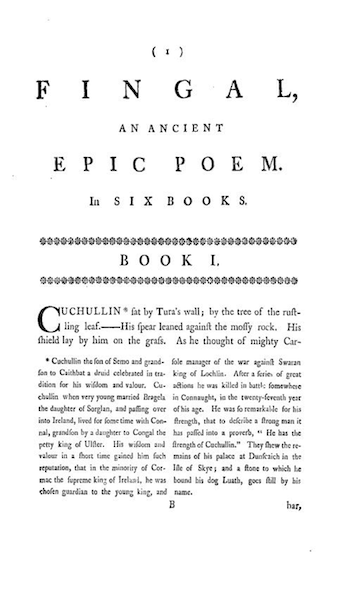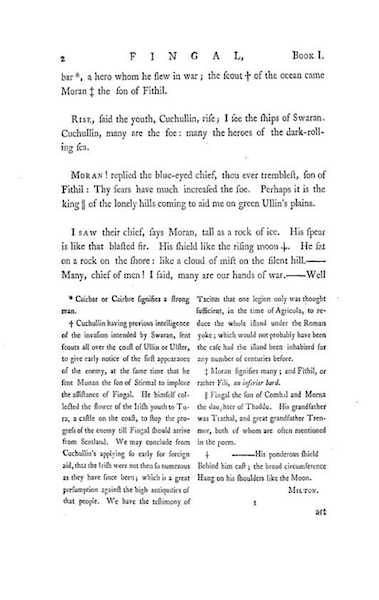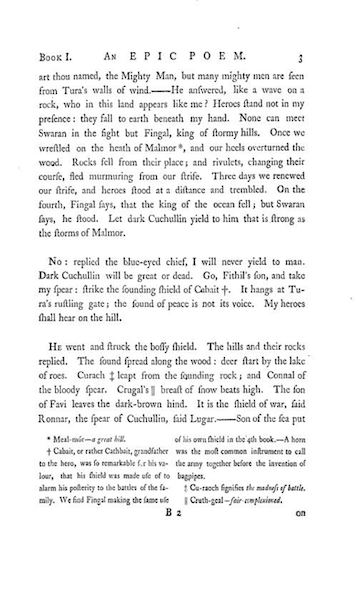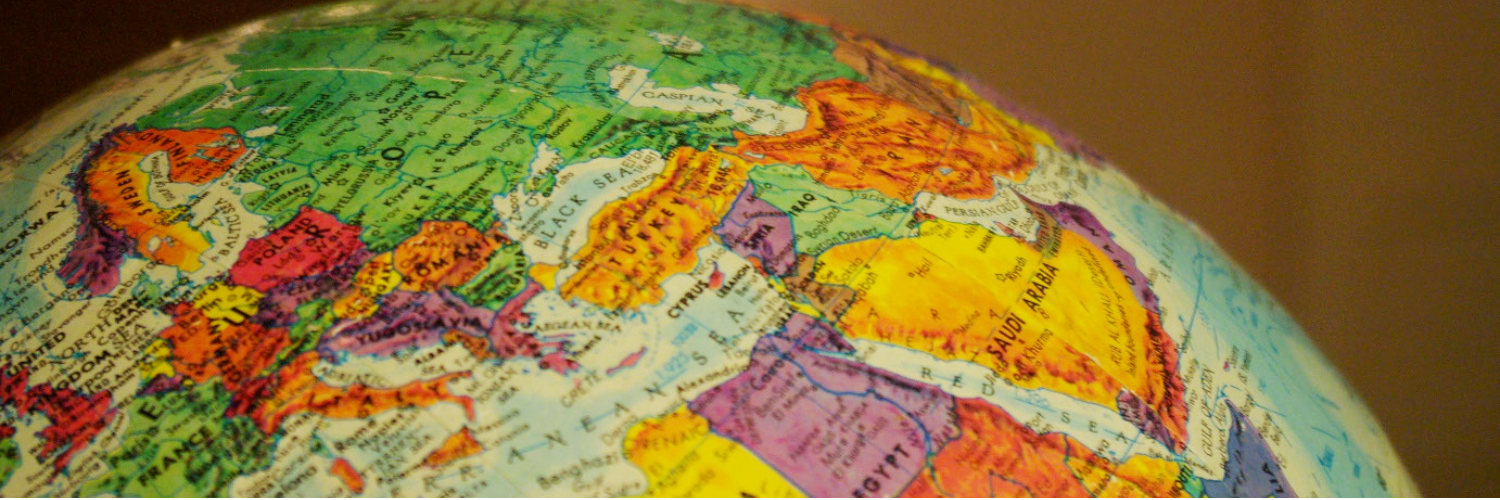We hold these truths to be self-evident, that all men are created equal, that they are endowed by their Creator with certain unalienable Rights, that among these are Life, Liberty and the pursuit of Happiness. —That to secure these rights, Governments are instituted among Men, deriving their just powers from the consent of the governed, —That whenever any Form of Government becomes destructive of these ends, it is the Right of the People to alter or to abolish it, and to institute new Government, laying its foundation on such principles and organizing its powers in such form, as to them shall seem most likely to effect their Safety and Happiness.
—Declaration of Independence (1776)
The representatives of the French people, constituted as a National Assembly, considering that ignorance, neglect, or contempt for the rights of man are the sole causes of public misfortunes and of the corruption of governments, have resolved to set forth, in a solemn declaration, the natural, inalienable and sacred rights of man, in order that this declaration, constantly present to all members of the social body, will ceaselessly remind them of their rights and their duties; so that the acts of the legislative and the executive powers, able to be compared at any moment with the aim of all political institutions, will be better respected; so that the claims of citizens, based henceforth on simple and incontestable principles, will always contribute to maintaining the Constitution and the happiness of all.
—Declaration of the Rights of Man and Citizen (1789)
It is true that deference to authority has declined, that its lawlessness is unmasked, and, although still armed with power, sneaks no dignity any more; men have awoken from their long lethargy and self-deception, and by an impressive majority they are demanding the restitution of their inalienable rights. Nor are they merely demanding them: on every side they are bestirring themselves to seize by force what has, in their opinion, been wrongfully withheld from them. The fabric of the natural State is tottering, its rotten foundations are yielding, and there seems to be a physical possibility of setting Law upon the throne, of honouring Man at last as an end in himself and making true freedom the basis of political association. Vain hope! The moral possibility is wanting, and the favourable moment finds an apathetic generation.
—Schiller, On the Aesthetic Education of Man (1794)
Literature and Culture of the Romantic Period: The Logic of Culture
Truth and Beauty
Poetry is republican speech: a speech which is its own law and end unto itself, and in which all the parts are free citizens and have the right to vote.
—Friedrich Schlegel, “Critical Fragments” (1798)
I am now convinced that the highest act of reason, by encompassing all ideas, is an aesthetic act, and that truth and goodness are only siblings in beauty...Until we make ideas aesthetic, that is, mythological, they are of no interest to the people, and vice versa: until mythology is rational, it will be an embarrassment to philosophy. Thus those who are enlightened and those who are not must finally make common cause, mythology must become philosophical, to make the people rational, and philosophy must become mythological, to make philosophy sensuous. Then eternal unity will reign among us. Never again the arrogant glance, never again the blind shuddering of the people before its wise men and priests. Only then will equal development of all of our powers await us, for the particular person as well as for all individuals. Now power will again be suppressed, then general freedom and equality will reign among spirits! – A higher spirit, sent from heaven, must found this new religion among us, it will be the last, greatest task of humanity.
—Friedrich Hölderlin, “Oldest Programme for a System of German Idealism” (1796)
The whole objection however of the immorality of poetry rests upon a misconception of the manner in which poetry acts to produce the moral improvement of man. Ethical science arranges the elements which poetry has created, and propounds schemes and proposes examples of civil and domestic life: nor is it for want of admirable doctrines that men hate, and despise, and censure, and deceive, and subjugate one another. But Poetry acts in another and a diviner manner. It awakens and enlarges the mind itself by rendering it the receptacle of a thousand unapprehended combinations of thought. Poetry lifts the veil from the hidden beauty of the world, and makes familiar objects be as if they were not familiar; it reproduces all that it represents, and the impersonations clothed in its Elysian light stand thenceforward in the minds of those who have once contemplated them, as memorials of that gentle and exalted content which extends itself over all thoughts and actions with which it coexists. The great secret of morals is Love; or a going out of our own nature, and an identification of ourselves with the beautiful which exists in thought, action, or person, not our own.
—Percy Bysshe Shelley, A Defence of Poetry (1821)
O Attic shape! Fair attitude! with bredeOf marble men and maidens overwrought,With forest branches and the trodden weed;Thou, silent form, dost tease us out of thoughtAs doth eternity: Cold Pastoral!5When old age shall this generation waste,Thou shalt remain, in midst of other woeThan ours, a friend to man, to whom thou say’st,“Beauty is truth, truth beauty,”—that is allYe know on earth, and all ye need to know.10
—John Keats, “Ode on a Grecian Urn” (1819)
I promised to send you a description of the federation [festival celebrating the fall of the Bastille]: but it is not to be described! One must have been present, to form any judgment of a scene, the sublimity of which depended much less on its external magnificence than on the effect it produced on the minds of the spectators. ‘The people, sure, the people were the sight!’ I may tell you of pavilions, of triumphal arches, of altars on which incense was burnt, of two hundred thousand men walking in procession; but how am I to give you an adequate idea of the behaviour of the spectators? How am I to paint the impetuous feelings of that immense, that exulting multitude? Half a million of people assembled at a spectacle, which furnished every image that can elevate the mind of man; which connected the enthusiasm of moral sentiment with the solemn pomp of religious ceremonies; which addressed itself at once to the imagination, the understanding, and the heart!
—Helen Maria Williams, Letters Written in France (1790)
Literature and Culture of the Romantic Period: The Logic of Culture
Philosophical Contexts for Julie
The transition from the state of nature to the civil state produces a very remarkable change in man, by substituting in his behavior justice for instinct, and by imbuing his actions with a moral quality they previously lacked. Only when the voice of duty prevails over physical impulse, and law prevails over appetite, does man, who until then was preoccupied only with himself, understand that he must act according to other principles, and must consult his reason before listening to his inclinations. Although, in this state, he gives up many advantages that he derives from nature, he acquires equally great ones in return; his faculties are used and developed; his ideas are expanded; his feelings are ennobled; his entire soul is raised to such a degree that, if the abuses of this new condition did not often degrade him below that from which he has emerged, he ought to bless continually the wonderful moment that released him from it forever, and transformed him from a stupid, limited animal into an intelligent being and a man.
—Rousseau, “The Civil State,” The Social Contract (1762)
The dynamic state can only make society possible, by curbing Nature through Nature; the ethical State can only make it (morally) necessary, by subjecting the individual to the general will; the aesthetic State alone can make it actual, since it carries out the will of the whole through the nature of the individual. Though need may drive Man into society, and Reason implant social principles in him, Beauty alone can confer on him a social character. Taste alone brings harmony into society, because it establishes harmony in the individual.
—Friedrich Schiller, On the Aesthetic Education of Man (1794)
In the progress of society, the genius and manners of men undergo a change more favourable to accuracy than to sprightliness and sublimity. As the world advances, the understanding gains ground upon the imagination; the understanding is more exercised; the imagination, less. Fewer objects occur that are new or surprizing. Men apply themselves to trace the causes of things; they correct and refine one another; they subdue or disguise their passions; they form their exterior manners upon one uniform standard of politeness and civility. Human nature is pruned according to method and rule. Language advances from sterility to copiousness, and at the same time, from fervour and enthusiasm, to correctness and precision. Style becomes more chaste; but less animated. The progress of the world in this respect resembles the progress of age in man. The powers of imagination are most vigorous and predominant in youth; those of the understanding ripen more slowly, and often attain not their maturity, till the imagination begins to flag. Hence, poetry, which is the child of imagination, is frequently most glowing and animated in the first ages of society. As the ideas of our youth are remembered with a peculiar pleasure on account of their liveliness and vivacity; so the most ancient poems have often proved the greatest fovourites of nations.
—Hugh Blair, A Critical Dissertation on the Poems of Ossian (1763)



Literature and Culture of the Romantic Period: The Logic of Culture
Romantic Writers on Ossian
Fingal being talked of, Dr. Johnson, who used to boast that he had, from the first, resisted both Ossian and the Giants of Patagonia, averred his positive disbelief of its authenticity. Lord Elibank said, ‘I am sure it is not Macpherson’s. Mr. Johnson, I keep company a great deal with you; it is known I do. I may borrow from you better things than I can say myself, and give them as my own; but if I should, everybody will know whose they are.’ The Doctor was not softened by this compliment. He denied merit to Fingal, supposing it to be the production of a man who has had the advantages that the present age affords, and said, ‘Nothing is more easy than to write enough in that style if once you begin.’ One gentleman in company expressing his opinion that Fingal was certainly genuine, for that he had heard a great part of it repeated in the original, Dr. Johnson indignantly asked him whether he understood the original; to which an answer being given in the negative, ‘Why then,’ said Dr. Johnson, ‘we see to what this testimony comes: thus it is.’
—James Boswell, Journal of a Tour to the Hebrides with Samuel Johnson (1785)
The elegiac poet seeks nature, but as an idea and in perfection in which she has never existed, even if he mourns her as something having existed and now lost. When Ossian tells of the days which are no more, and of the heroes who have disappeared, his poetic power has long since transformed those images of recollection into ideals, and those heroes into gods. The experience of a particular loss has been broadened into the idea of universal evanescence and the bard, affected and pursued by the image of omnipresent ruin, elevates himself to the skies to find there, in the cycle of the sun, an image of the immutable.
—Friedrich Schiller, Naïve and Sentimental Poetry (1795)
There are, it seems to me, two entirely distinct literatures, that coming up from the South and that coming down from the North, that of which Homer is the main source and that of which Ossian is the origin. The English poets, it may be said, are noteworthy for their philosophic spirit – it is displayed in all their works – whereas Ossian has almost no serious ideas: he narrates a succession of incidents and impressions. I answer to this objection that the most common images and ideas in Ossian are those that call to mind the brevity of life, respect for the dead and the celebration of their memory, and the devotion of those who remain to those who are departed. If the poet has not combined with these sentiments any moral maxims or philosophical reflections, it is because in that era the human mind was not yet capable of the abstraction necessary for the drawing of conclusions. But the shock to the imagination caused by the songs of Ossian dispose the mind to the most profound meditations.
—Mme de Staël, On Literature (1800)
None but foreigners are still the dupes of Ossian; all England is convinced that the poems which bear the name of his are the works of Mr. Macpherson himself. I was for a long time deceived by this ingenious fraud; an enthusiast in Ossian, like a young man, as I was then, I was obliged to pass several years among the literati of London before I could be entirely undeceived. But at length, conviction was no longer to be resisted, and the palaces of Fingal vanished away from before me like many other of my dreams . . .
To say the truth it seems now wholly incredible how any one ever could have been deceived with respect to the true author of Ossian’s poems. The man of the eighteenth century peeps through the thin veil at every moment. I will only instance by way of example the apostrophe of the bard to the sun. ‘O sun,’ he says, ‘whence comest thou, whither dost thou go, wilt thou not fall one day,’ &c., &c.
Madame de Staël who is so well versed in the history of the human understanding will see that there are here so many complex ideas under moral, physical, and metaphysical relations, that they can scarcely without palpable absurdity be ascribed to a savage. Besides this, the most abstract ideas on time, on duration, and on eternity, occur at almost every page of Ossian. I have lived among the savages of America, and I have observed that they often talk of the times that are past, but never of those that are to come. Some grains of dust at the bottom of the tomb, remain to them as a testimony of life in the vacuum of the past, but what can indicate to them existence in the vacuum of the future. This anticipation of the future, which is so familiar to us, is nevertheless one of the strongest abstractions at which the ideas of mankind have arrived. Happy the savage who does not know like us, that grief is followed by grief, and whose soul devoid of recollection or of foresight does not concenter in itself, by a sort of painful eternity, the past, the present, and the future.
But what proves incontestably that Mr. Macpherson is the author of Ossian’s poems, is the perfection or the beautiful ideal of morals which reigns in them. This deserves to be somewhat dwelt upon. The beautiful ideal is the offspring of society; men nearly in a state of nature have no conception of it. They content themselves in their songs, with painting exactly what they see; and as they live in the midst of deserts, their pictures are always grand and poetical; for this reason no bad taste is to be found in their compositions, but then they are and must be, monotonous, and the sentiments they express cannot arrive at true heroism. . . .
I ask now where Ossian could have imbibed those perfect ideas of morals with which he adorns his heroes. It was not in his religion, since it is agreed on all hands that there is no religion among his savages. Could it be from nature itself? – And how should the savage Ossian seated upon a rock in Caledonia, while every thing around him was cruel, barbarous, gross and sanguinary, arrive so rapidly at those notions of morals which were scarcely understood by Socrates in the most enlightened days of Greece? – notions, which the Gospel alone revealed to the world, as the result of observations pursued for four thousand years upon the character of man....In fine, Mr. Macpherson has been guilty of mistakes in Natural History, which would alone suffice to betray the imposture: he has planted oaks where nothing but gorse ever grew, and made eagles scream, where nothing was ever heard but the voice of the barnacle, or the whistling of the curlew.”
—René de Chateaubriand, “Letter to M. de Fontanes Upon Mme de Staël’s System of Morals” (1800)

